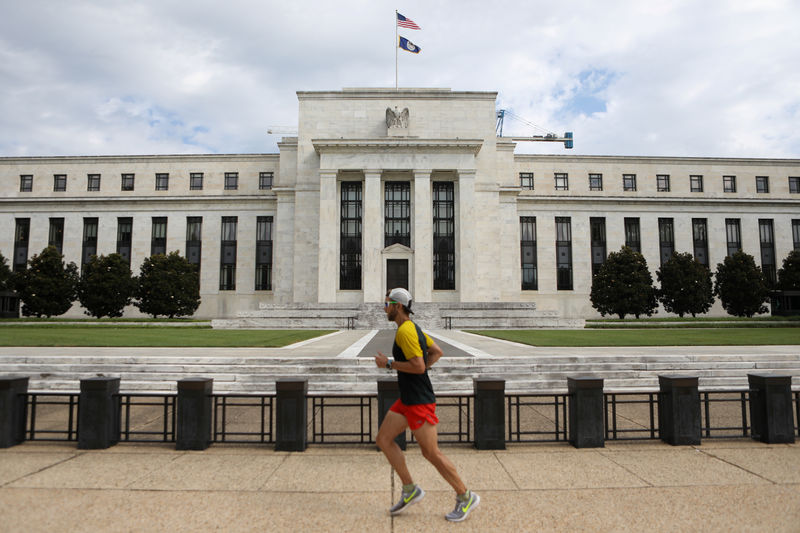By Yasin Ebrahim
Investing.com - Federal Reserve officials backed the current accommodative monetary policy stance when they met last month, pointing to an uneven recovery and expectations the pick-up in inflation is transitory, according to the minutes of the Fed's April 27-28 meeting, released Wednesday.
"Participants also noted that the expected surge in demand as the economy reopens further, along with some transitory supply chain bottlenecks, would contribute to PCE price inflation temporarily running somewhat above 2 percent. After the transitory effects of these factors fade, participants generally expected measured inflation to ease," the minutes showed.
At the conclusion of its previous meeting on April. 28, the Federal Open Market Committee, the Fed's rate-setting arm, kept its benchmark rate steady in a range of 0% to 0.25% and bond purchases steady at a $120 billion monthly pace.
The Fed has largely downplayed calls to at least start thinking about tapering its monthly bond purchases, reiterating that policy is likely to stay the current course until there was "sustained progress" toward its maximum employment and inflation goals.
"[M]embers agreed that it would be appropriate for the Federal Reserve to continue to increase its holdings of Treasury securities by at least $80 billion per month and agency mortgage-backed securities by at least $40 billion per month until substantial further progress had been made toward the Committee's maximum-employment and price-stability goals," according to the Minutes.
The central bank has outlined a three-part test that must be met until it would consider reining in monetary policy. The three part test includes maximum employment, inflation reaching 2%, and on track to run moderately above 2% for some time.
The Fed's resolve to persist with an accommodative monetary policy has been strengthened recently after the April jobs report fell well short of expectations.
"We’re still more than eight million jobs short of where we were 14 months ago so there’s still a deep hole in the labor market," Federal Reserve Vice Chairman Richard Clarida said earlier this week. The jobs data shows "we have not made substantial further progress,” he added.
The red-hot inflation reports in recent weeks have stoked concern the Fed could find itself behind the curve, and be forced to aggressively tighten policy should its bet that inflation is transitory prove unfounded.
But some on Wall Street agree with the Fed's take on inflation.
Services segment inflation and supply-chain disruptions are two sources of inflation this year, but the overall pace of inflation is expected to be "modest," Wells Fargo (NYSE:WFC) said.
Services-segment inflation is climbing from a 10-year low as the economy reopens, and while bottlenecks in the supply chain could pressure input costs for goods "over the next 6 to 12 months […] we are already seeing supply bottlenecks subside," it added.
